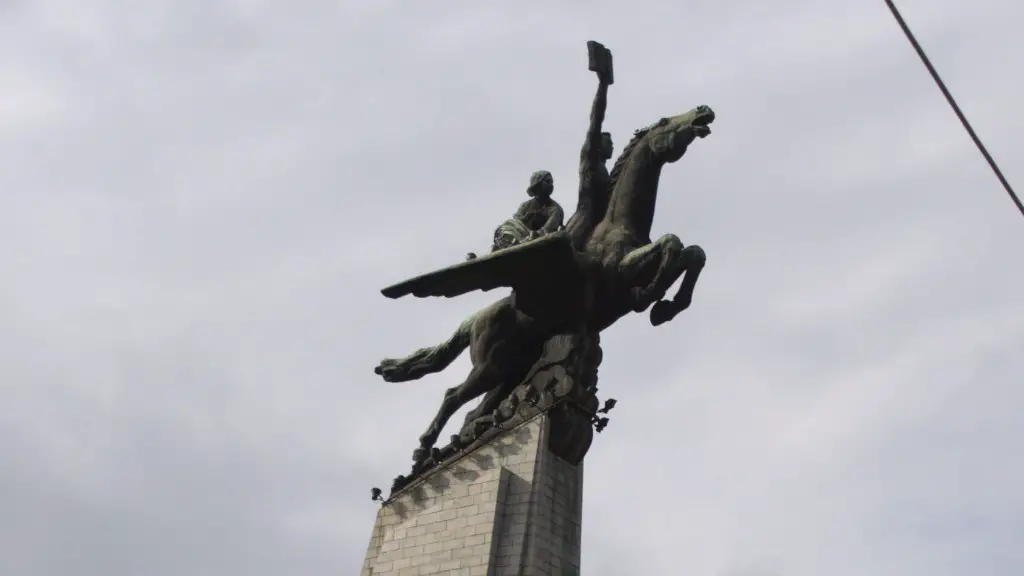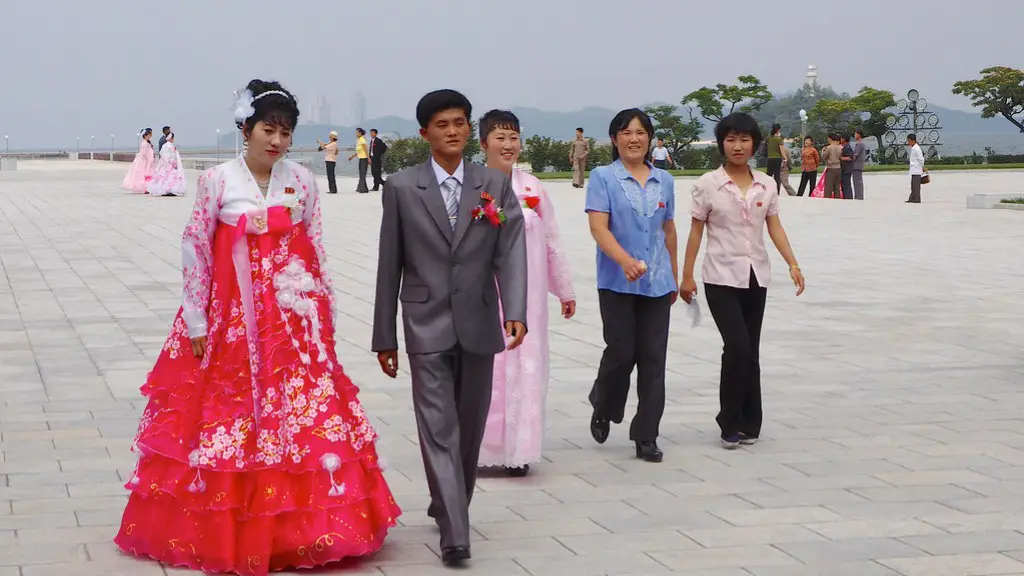Background
North Korea is an authoritarian state with a history of repression. It is one of the most regime-authoritarian countries in the world, with no significant signs of democratization. In addition, North Korea’s government is consistently ranked among the least tolerant and least transparent countries in the world. North Korea’s government is composed of a single ruling party – the Korean Worker’s Party – which controls all political, economic, and social activity. Its policies are characterized by isolationism, extreme nationalism, and a cult of personality surrounding its leaders. The country has been mired in international sanctions and exclusion from international organizations since its creation in 1948, and its frequent violations of human rights and disregard for the rule-of-law have drawn consistent international condemnation.
Political Structure
At the top of North Korea’s political structure is Supreme Leader, Kim Jong-un. He is responsible for all of North Korea’s domestic and foreign policy, military, and economic decisions. He holds absolute power, as both the head of state and the head of the ruling party, the Korean Worker’s Party. The regime’s other elites are mostly members of Kim’s family, who have held power since the country’s establishment in 1948. There are limited political freedoms in the country, and while there are some elections, the results are predetermined. Information is highly controlled, with only state-sanctioned media sources producing news and opinion pieces. Beyond Kim and his family, there is no independent decision-making in North Korea, and political dissent is virtually non-existent.
Social Structure
The country is also highly socially repressive. Its citizens are monitored by the Ministry of State Security and its extensive network of informants. People are regularly detained and imprisoned for political offenses, such as criticizing the government. Freedom of speech and assembly are tightly restricted. The state also practices arbitrary enforcement of its laws, which has led to widespread human rights abuses. North Korean citizens do not have the right to privacy or due process protections under the law, and are subject to arbitrary arrest, detention, torture, and execution.
Economy
North Korea’s economy is heavily reliant on external aid and largely isolated from the global economy. It is also highly militarized, with the large amount of resources devoted to its military initiatives, such as its missile program. The country is heavily sanctioned and subject to economic embargoes, making economic development difficult. The government has taken steps to open up the economy in recent years, such as allowing foreign investment. However, the extent to which this will be successful is unknown.
International Relations
North Korea rarely engages in diplomatic relations and largely avoids participating in international organizations. It has a long-standing history of aggressive foreign policy and has been criticized for its nuclear proliferation. In recent years, the country has been in a protracted conflict with South Korea, which it has accused of harboring the American military and attempting to undermine North Korea’s political stability. North Korea has also threatened other countries, including the United States, with military action, raising tensions on the international stage.
Opinion of the International Community
The international community has consistently expressed disapproval of North Korea’s authoritarian regime and its ongoing human rights abuses. In response to its nuclear proliferation, the United Nations has imposed multiple sanctions on the country. Additionally, the United States and other countries have imposed economic sanctions in response to North Korea’s aggressive foreign policy. However, these measures have been largely unsuccessful, as the North Korean government continues to maintain its authoritarian rule.
Analysis
North Korea’s authoritarian regime is a direct result of its long-standing history of isolationism and extreme nationalism. Its leaders have used the country’s perceived security threats, such as the United States, South Korea, and Japan, to maintain control of the population, while they seek to remain independent of international influence. The government has used its resources to build a military-industrial complex to protect the regime and maintain its political domination. While international sanctions and diplomatic pressure have been largely unsuccessful, the only way to end North Korea’s authoritarianism is through internal pressure and economic reform.
International Pressure
While there have been several attempts by the international community to pressure North Korea, they have been largely unsuccessful. Sanctions by the United Nations and the United States have failed to halt the country’s military development or nuclear proliferation. In addition, diplomatic pressure has likewise failed to bring about any lasting change. As North Korea’s government is composed of a single party with a cult of personality around its leader, there is little room for diplomatic dialogue. As such, the only way to bring about change in North Korea is through internal pressure and economic reform.
Censorship
The North Korean government maintains strict censorship of the media and other forms of communication. Any information deemed “ subversive” is strictly prohibited and its citizens are subject to arbitrary arrest and detention for infractions. Freedom of speech, association, and movement are severely limited, and citizens have no independent media or access to uncensored information. This has significantly hampered efforts to promote peaceful reform in the country.
Propaganda
The North Korean government uses propaganda extensively to promote loyalty to the regime. Its official media outlets routinely publish stories that demonize foreign countries and promote the ideals of the ruling party. The government has also been accused of falsifying history and statistics to create a distorted image of reality. As a result, many North Koreans have become increasingly disconnected from the truth, leading to further isolation and distrust.
Conclusion
North Korea’s authoritarian regime has been in place for nearly seventy years, and it shows no signs of weakening. The government exercises absolute control over its citizens and policies, and has used tactics such as propaganda, censorship, and suppression of dissent to maintain its power. In addition, its continual violation of international law and human rights have been widely condemned. While international pressure and sanctions have failed to bring about lasting change, the only way to break the cycle of authoritarianism is through internal pressure and economic reform. Only then can North Koreans gain the freedoms and liberties that citizens of other countries enjoy.


